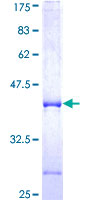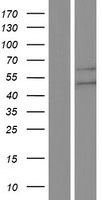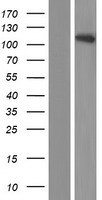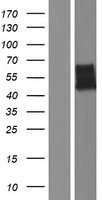order histories, retained contact details for faster checkout, review submissions, and special promotions.
Forgot password?
order histories, retained contact details for faster checkout, review submissions, and special promotions.
Locations
Orders Processing,
Shipping & Receiving,
Warehouse
2 Shaker Rd Suites
B001/B101
Shirley, MA 01464
Production Lab
Floor 6, Suite 620
20700 44th Avenue W
Lynnwood, WA 98036
Telephone Numbers
Tel: +1 (206) 374-1102
Fax: +1 (206) 577-4565
Contact Us
Additional Contact Details
order histories, retained contact details for faster checkout, review submissions, and special promotions.
Forgot password?
order histories, retained contact details for faster checkout, review submissions, and special promotions.
NRXN3
neurexin 3
NRXN3 is a member of a family of proteins that function in the nervous system as receptors and cell adhesion molecules. Extensive alternative splicing and the use of alternative promoters results in multiple transcript variants and protein isoforms for this gene, but the full-length nature of many of these variants has not been determined. Transcripts that initiate from an upstream promoter encode alpha isoforms, which contain epidermal growth factor-like (EGF-like) sequences and laminin G domains. Transcripts initiating from the downstream promoter encode beta isoforms, which lack EGF-like sequences. Genetic variation at this locus has been associated with a range of behavioral phenotypes, including alcohol dependence and autism spectrum disorder.
| Gene Name: | neurexin 3 |
| Family/Subfamily: | Neurexin , Not assigned-Other |
| Synonyms: | NRXN3, C14orf60, KIAA0743, Neurexin III-beta, Neurexin 3, Neurexin III, Neurexin III-alpha, Neurexin-3-beta |
| Target Sequences: | NM_004796 NP_004787.2 Q9Y4C0 |








If you do not find the reagent or information you require, please contact Customer.Support@LSBio.com to inquire about additional products in development.









